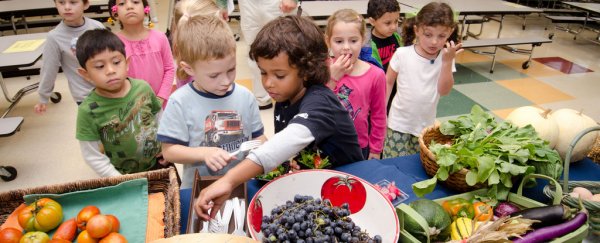It sounds like common sense, but by simply moving recess to before lunch, schools can make sure their students have a more nutritious meal each day, new research shows. And it can also greatly reduce the billions of dollars of food that's being thrown out in canteens.
Although countries such as Australia and Canada already hold recess mid-morning, in the US, the majority of schools hold the break in the afternoon, after students have already eaten their lunch.
But new research led by Brigham Young University in the US shows that this schedule might be increasing the amount of food that's being wasted by students each day - particularly fruits and vegetables.
"Recess is a pretty big deal for most kids. If you have kids choose between playing and eating their veggies, the time spent playing is going to win most of the time," said economics professor Joe Price, who led the study, in a news release.
His team looked at seven primary schools (grades one to six) in the Utah state district, and asked three of them to change their recess period to before lunch. The other four schools kept their regular scheduled, with recess being held after lunch.
The researchers then measured how many fruits and vegetables were being wasted by students over 14 days across 2014. They also assessed whether or not students were eating at least one serving of fruits or vegetables.
In total, the study looked at the eating habits of 22,939 students, and found that the students in schools who had moved recess to before lunch were eating 54 percent more fruits and vegetables than their peers. There was a also a 45 percent increase in the number of children eating at least one serving of the foods.
Even more damning is the fact that, during the study period, the students in schools who hadn't changed their recess to before lunch actually ate less fruits and vegetables. The results have been published in the journal Preventive Medicine.
Further research will no doubt be needed to convince school heads to change their schedules, but the research is exciting, as it suggests that by simply making one easy (and cheap) change, we can help improve the health of children and also reduce wastage.
As the authors write: "increased fruit and vegetable consumption in young children can have positive long term health effects. Additionally, decreasing waste of fruits and vegetables is important for schools and districts that are faced with high costs of offering healthier food choices."
If only the rest of society's problems were as easy to fix.
Source: Brigham Young University
